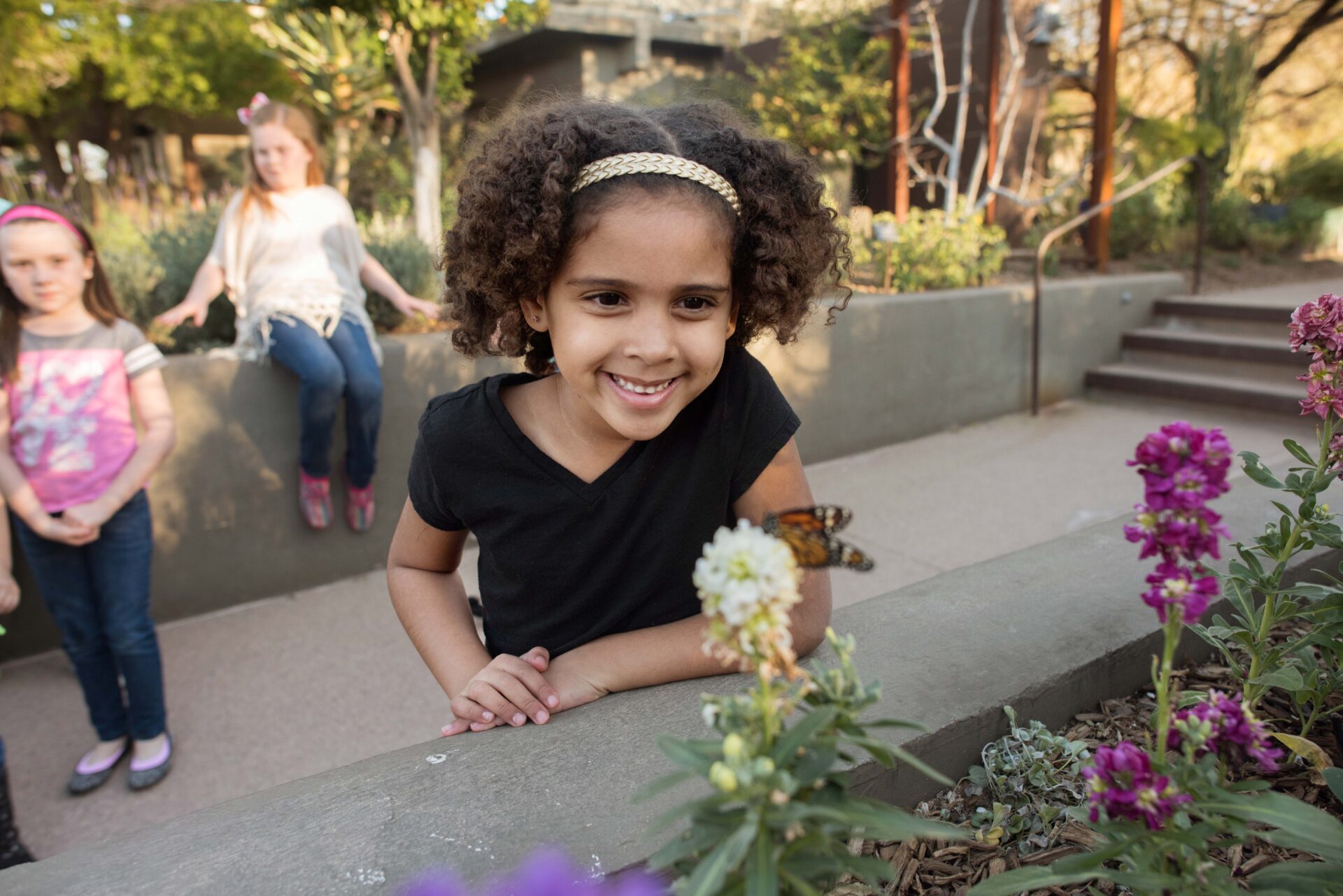Over the course of Desert Botanical Garden’s 85-year history, its mission “to advance excellence in education, research, exhibition, and conservation of desert plants” has never wavered. “The Garden was green before being green was cool,” says Kim McCue, chief science officer at DBG. “When I give tours focused on what the Garden does in regards to sustainability, I like to stop in the Garden, ask people to look around, and then I say, ‘Everything you see is what the Garden does for sustainability.’”
Specifically, DBG maintains 50,000 desert plants (many rare, threatened, or endangered) on 140 acres. “All of these plants provide habitat for a diverse array of animals, including road runners, great horned owls, round tailed ground squirrels, monarch and queen butterflies, and the occasional coyote and javelina,” McCue says.
Other sustainable efforts include an array of solar panels on the roofs of three buildings, offsetting the power use of DBG’s horticulture facilities; smart irrigation that is installed in parts of the Garden (with more to come), conserving water by insuring plants are only watered when they really need it; and above-ground cisterns that capture and store several thousand gallons of rain water from the roofs of several buildings (this water is then used to water plants when needed).

Furthermore, bio-retention basins in the parking-lot medians slow rain water down as it flows across the lot, allowing the water to percolate into the ground. The basins also help filter contaminants that build up on the parking lot. DBG also reuses materials (such as bricks) for renovation projects and recycles styrofoam that arrives as packing material in deliveries. Meanwhile, all parking-lot lights, exterior building lights, and landscape lighting have been transitioned to LED, using less energy and requiring less-frequent replacing,
“The Garden partners with Gertrude’s (the onsite restaurant) to collect food waste for composting (composting is done by Recycled City) and then used on farm plots in Phoenix to grow more food (farm-to-table-to-farm),” McCue says. “[We] also worked to have the city bus service come to the Garden, and we encourage the use of public transportation, carpooling, and other means of trip reduction.”
DBG also partners with other organizations on green initiatives, such as the Great Milkweed Grow Out (growing milkweeds for monarch butterfly conservation).
Runner up: Recycled City, www.recycledcity.com





